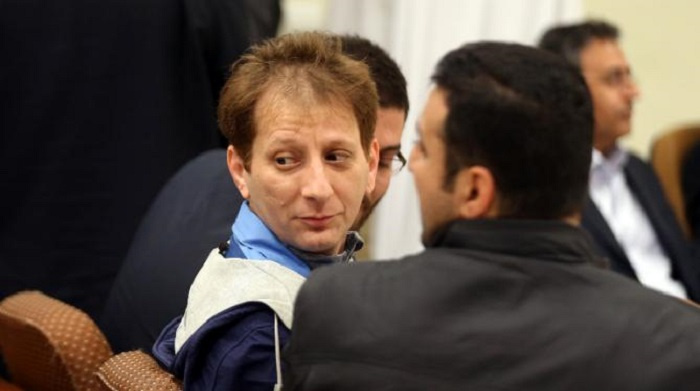Wardens, Death Penalty and Pardons

Just hours after a preliminary verdict was issued sentencing Iranian billionaire Babak Zanjani to death over embezzlement, elsewhere in the country a case of capital punishment received pardon while a similar case is awaiting destiny to decide.
An “environmental guard” in Dena district formerly sentenced to death has been granted pardon and released from the central detention house of Yasuj.
“The guard was released in a ceremony attended by a number of provincial authorities and representatives of environmental NGOs of the country and the province,” said Hadi Sinaei, director of the Public Relations Bureau of Kohgiluyeh and Boyer-Ahmad Province’s Environment Department.
Environmental guard As’ad Taghizadeh was involved in a gunfight with a number of unauthorized hunters that led to the death of Mojtaba Rezaei in 2008. Rezaei’s next of kin have finally withdrawn their right to Qisas, retributive justice in Islamic Sharia, hence the execution of the park ranger. In a ceremony held for the latter’s pardon and subsequent release held on Sunday, the deceased’s next of kin and the park ranger’s father hugged each other, reported Iranian Students News Agency (ISNA). As’ad Taghizadeh was released from prison after the completion of formalities on Monday.
According to ISNA, the release came after several artists, authors, journalists and cultural figures of the province and groups of people ventured to visit the house of Mr. Rezaei (the victim’s father) in order to ask him, legally bestowed the right to demand the execution of his son’s killer, to pardon the park ranger. Tens of human rights and environmental activists also issued statements urging officials to stop the verdict. At a final stage, Provincial Supreme Leader Representative, Ayatollah Seyyed Sharafoddin Malek-Hosseini, accompanied by a delegation of clerics, dignitaries, tribal chiefs as well as the district’s MP, the Political and Security Deputy Governor, and other provincial authorities visited the Rezaeis to ask for the pardon of the park ranger, when the next of kin relegated the decision to Ayatollah Malek-Hosseini. As’ad Taghizadeh comes back to life after more than six years in prison, without a single day on leave.
A colleague of Taghizadeh has also been sentenced to death over a similarly alleged murder of an unauthorized hunter. Gholam-Hossein Khaledi has spent little less than three years in prison and is awaiting death despite efforts to convince the victim’s next of kin to pardon him. During his imprisonment, two sons and a daughter of his have died but he was not allowed any leave of absence. According to a report published in Shargh Daily, Khaledi’s conviction of intentional killing, hence the Qisas verdict, which is now being appealed, is based on the personal knowledge of the judge, which can be used as evidence in substantiation of a claim in Iran’s judiciary system.
“Five hundred meters to Ghodveis’ summit, 4400 meters away from Dena, four hunters were going downhill with the carcass of a wild goat. Hearing a rifle gunshot, the park rangers started looking for the hunters. Down on a hill, the hunters started shooting at the officers as they were commanded to stop. A clash starts and gunshots are fired into the air. Gholam-Hossein Khaledi becomes involved in a fight with two hunters who have taken out their knives. The other two hunters are watching the scene with rifles in their hands. Khaledi and his colleagues grapple with the hunters and twelve bullets are fired from five Kalashnikovs in the midst of the fight. Suddenly, Mohammad Payehgozar falls on the ground with an unsheathed knife in his hand,” JavadHeidarian writes for Shargh.
The thirty men in charge of protecting 90 thousand hectares of the most mountainous province in Iran work six successive days instead of four days of work and two days of rest. Their problems include delayed salaries, lack of benefits, and flawed contracts to name a few. These followed by a lack of support from Iran’s Department of Environment (DoE) in cases of a lawsuit has resulted in the extinction of park rangers, as Narges Judaki aptly puts in a report published in Shabakeh Aftab (Aftabnet) magazine.
Environmentalists in Iran are concerned that the DoE will come short of accomplishing its protection duties if it goes on to ignore the lives of its staff. At the same time, on the ground, that execution will not prevent future offenses, Hassan Rouhani has slammed the verdict issued for Babak Zanjani as he addressed people of Yazd on Monday. “The people are asking where the $2.7 billion has gone; who was behind it,” he said, noting that execution will not solve anything.
Iranian Minister of Justice Mostafa Pourmohammadi, a link between Rouhani’s administration and the Judiciary, has suggested a possibility for commutation of Zanjani’s sentence in case he pays the money he allegedly owes to the country’s Petroleum Ministry.

